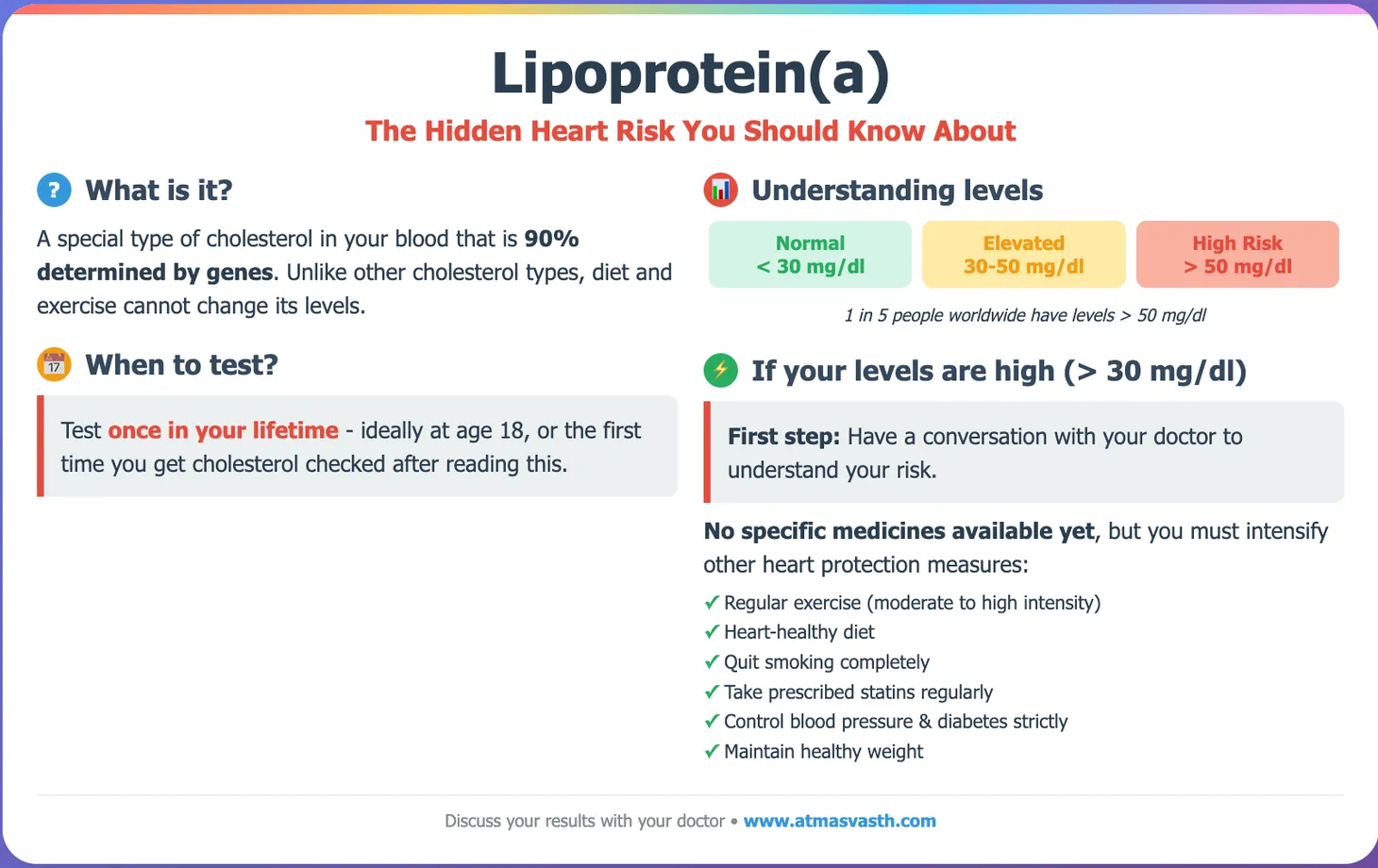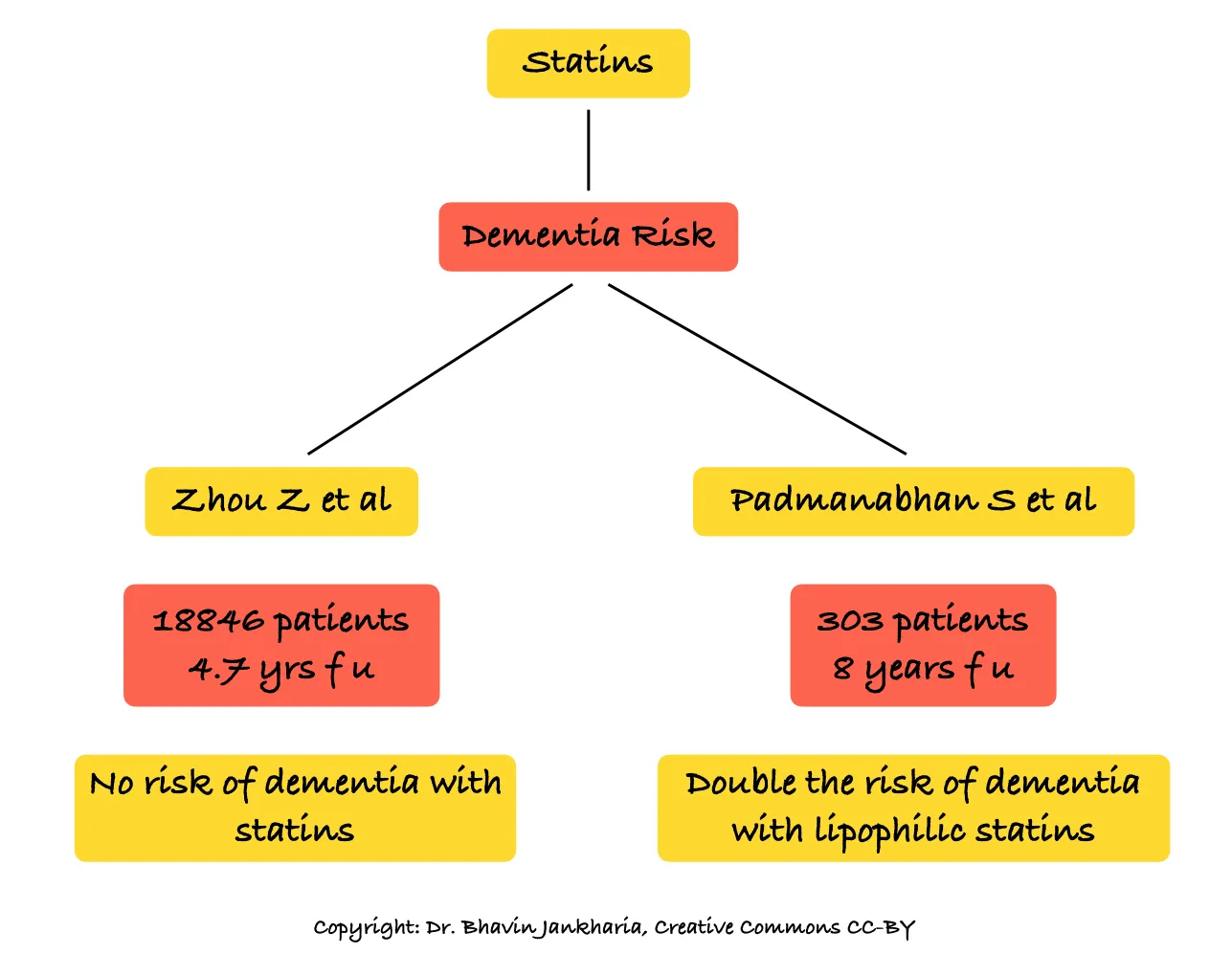Placebo, Nocebo
The placebo and nocebo effects matter in medicine
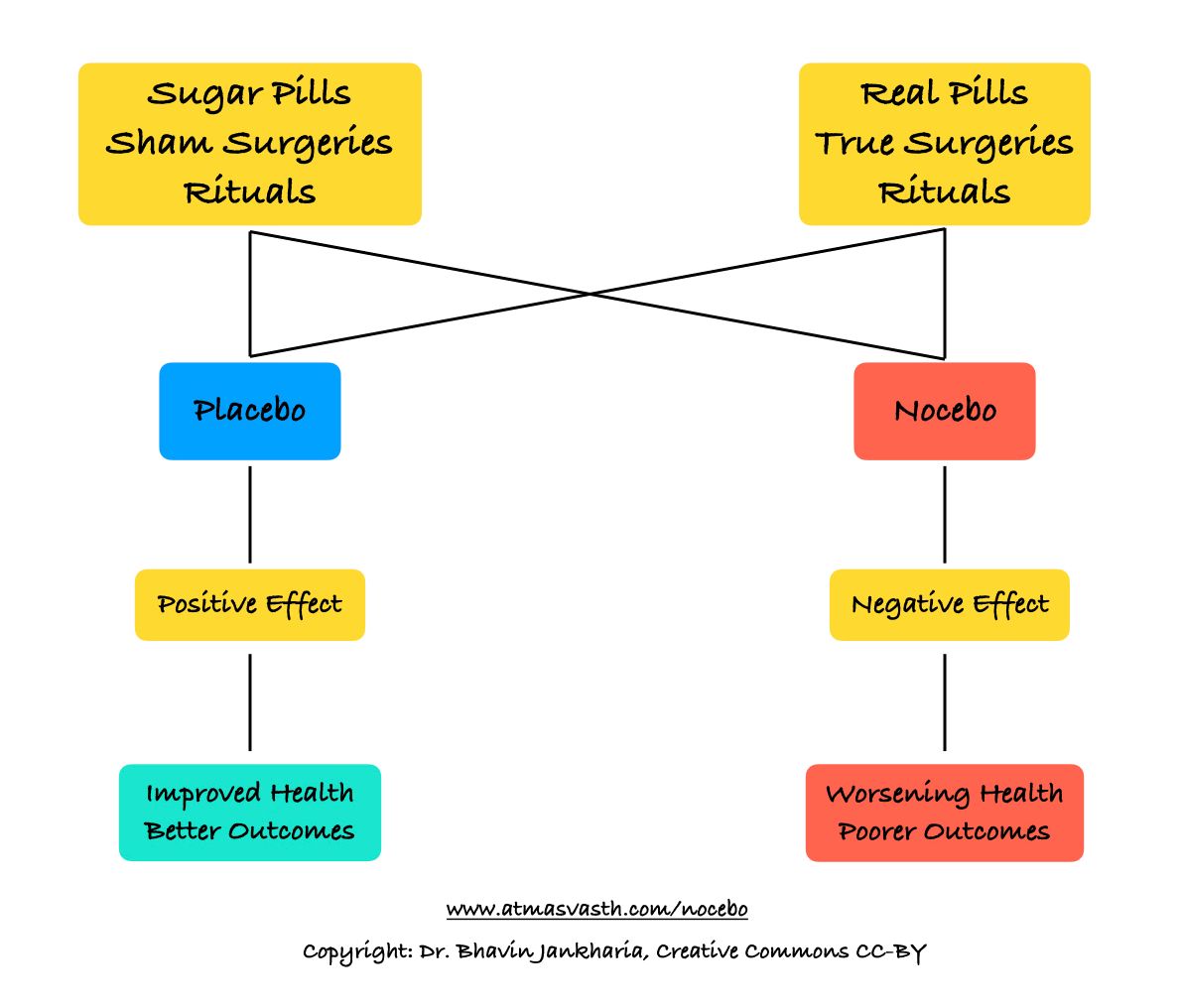
A few months ago, I had reported on the N + 1 trial by Frances Wood [1] and colleagues that showed a significant nocebo effect when a patient was given identical placebo and statin tablets.
This study, now called SAMSON (Self-Assessment for Statin Side-Effects or Nocebo) [2] with James Howard as the first author has just been published in an expanded form in JACC with the same results.
As they conclude, “Side effects from taking statin tablets are verifiable but are driven by the act of taking tablets rather than whether the tablets contain a statin.“
The accompany editorial by Peter Toth [3] ends with this statement “Aches and pains are a fact of life; just because a patient has them does not mean they should be attributed to their statin’’.
Why is all this important? Because statins save lives. And despite their known significant benefits in helping us live long, healthy, more than half the people who start statins stop them due to perceived side effects, which as the SAMSON study reiterates, are often just because of the act of taking the tablet itself, irrespective of whether it is a placebo or a statin.
Over the last two weeks, Paul Skallas who runs the Lindy newsletter, published two exhaustive pieces titled “In Praise of the Placebo Effect”. They are behind a pay-wall, but worth reading.
The placebo effect is an important part of any treatment and whether understood or not, was even more important before the advent of modern medicine, when doctors had much less to offer and the rituals associated with the treatment were as important as the medicine or surgery itself.
Mr. Skallas quotes Plato, “I said that the cure is a certain leaf, but in addition to the drug, there is a certain charm, which if someone chants when he makes use of it, the medicine altogether restores him to health, but without the charm, there is no profit from the leaf.”
The placebo effect is real. When the patient believes that the surgery will help with pain relief, it is likely there will be pain relief, whether the actual surgery is eventually done or not, as sham studies have shown.
Mr. Skallas also quotes Galen, “He cures most successfully in whom the people have the most confidence."
I have personally experienced this. When my family physician Dr. M S Sabnis would enter the room, his mere presence would make my fever disappear.
This is also why homeopathy works. If you have faith that the medicine that the homeopath is giving will help you, especially with conditions such as headaches, aches and pains, allergic colds and coughs and similar chronic conditions, then you will get better despite the fact that the pills have no real medicinal value and even if you know they are just sugar pills.
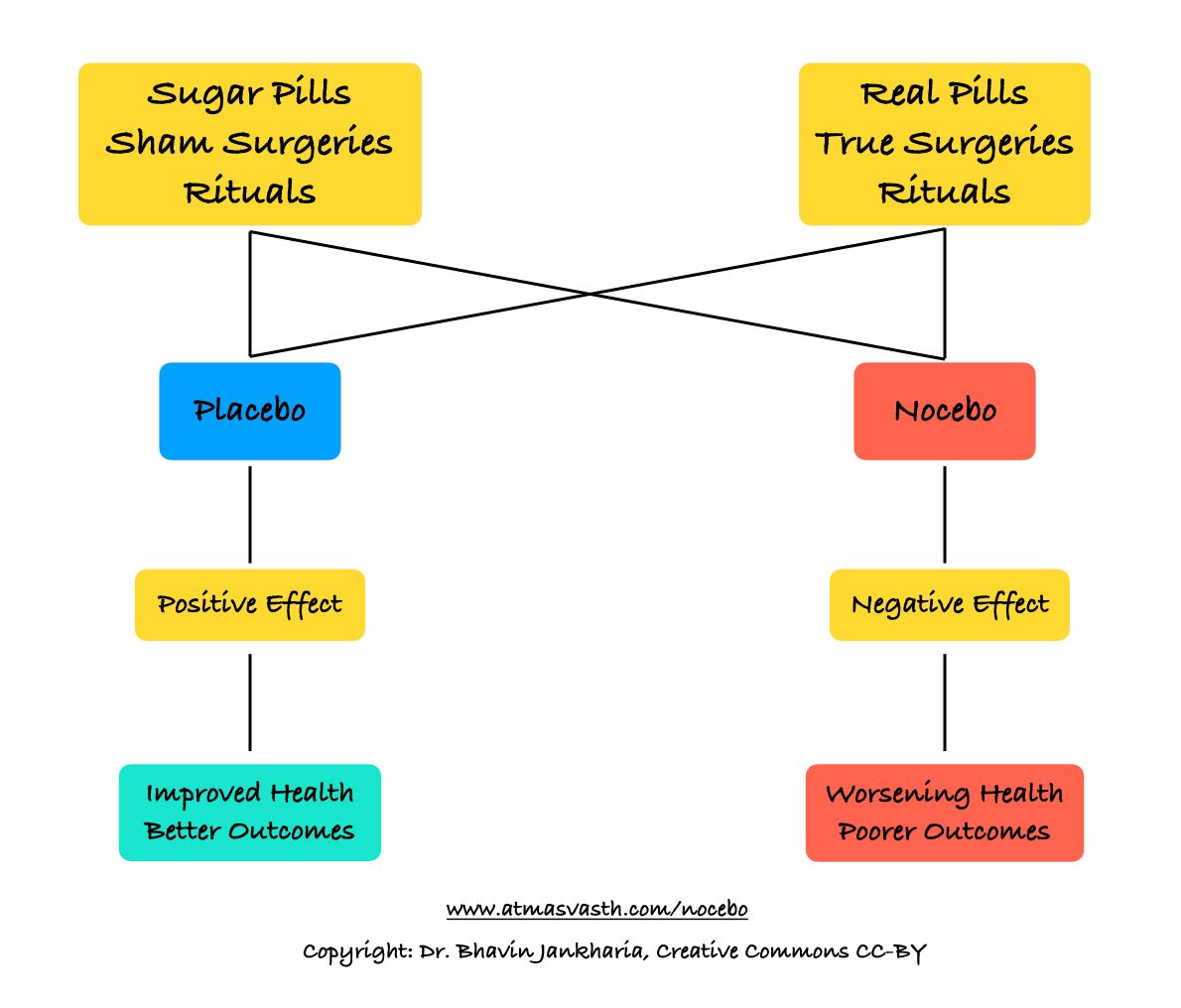
Dr. Abraham Verghese talks about the ritual of the clinical examination. Each time a patient comes in, whether superfluous or not, the ritual of making the patient sit, checking the pulse, perhaps the blood pressure, then making the patient lie down on the bed, examining the chest with a stethoscope and palpating the abdomen, instills confidence in patients that the doctor is taking them seriously, and giving adequate time. Often just this ritual makes them feel better. The converse is also true. If the visit is perfunctory or if the doctor is curt or rude or appears rushed, the patient may feel short-changed and the symptoms may even worsen, as part of a nocebo effect.
We know much less about the nocebo effect than about placebos. But as the SAMSON study shows, if you have moderate to high cardiovascular disease risk that needs treatment with statins and if you develop adverse effects with statins, it may just be a perception due to the nocebo effect and perhaps stopping and re-starting statins may sort out the problem.
In the longer term, we should remember that our body has powerful self-healing mechanisms. We should identify people or doctors who we have faith in, who can activate these defenses for us as part of a placebo effect if and when we fall sick, to help us fight the disease alongside the medicines or surgery needed as part of the overall treatment.
Last Sunday's Post
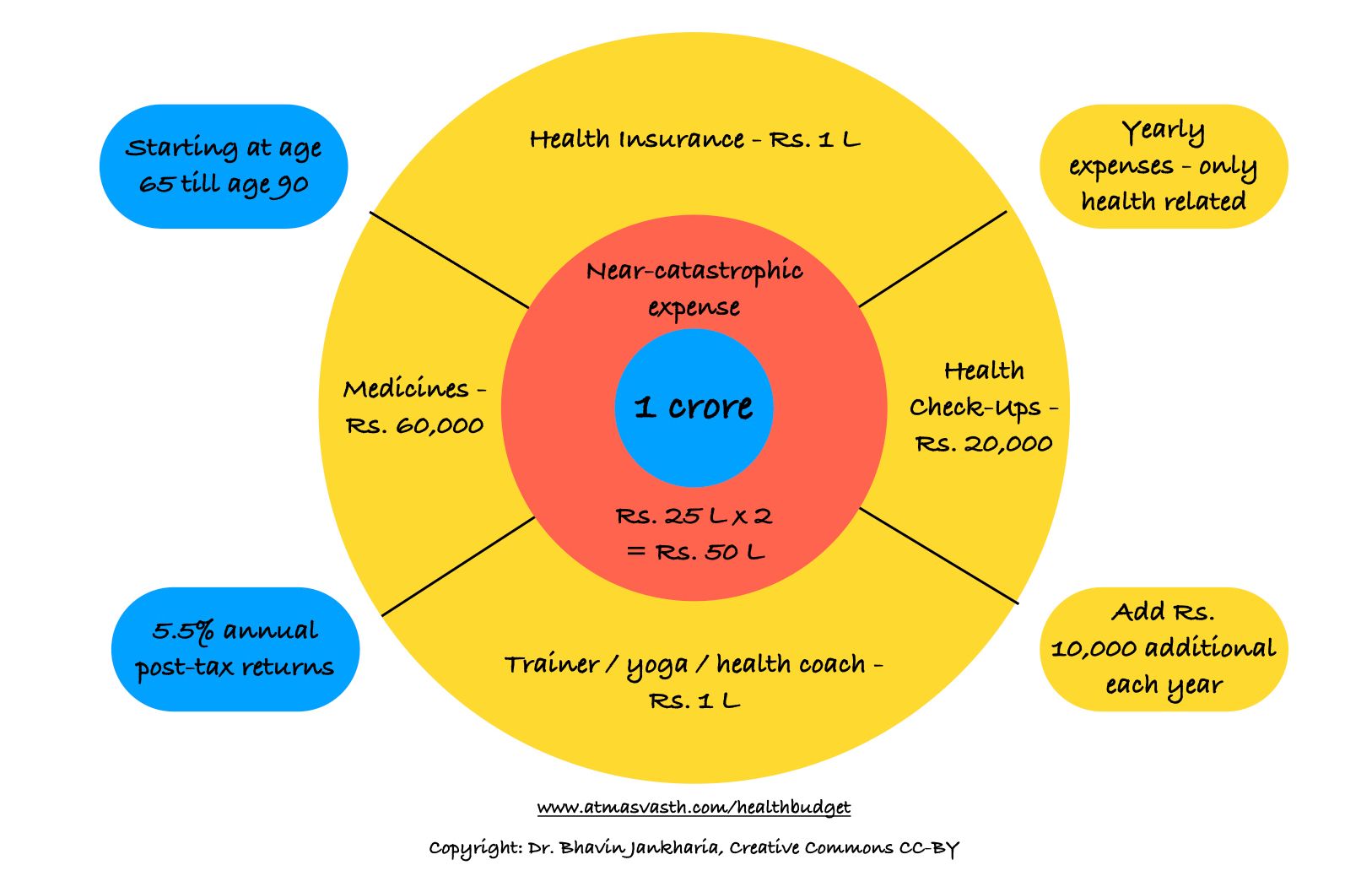
Last Wednesday's Post
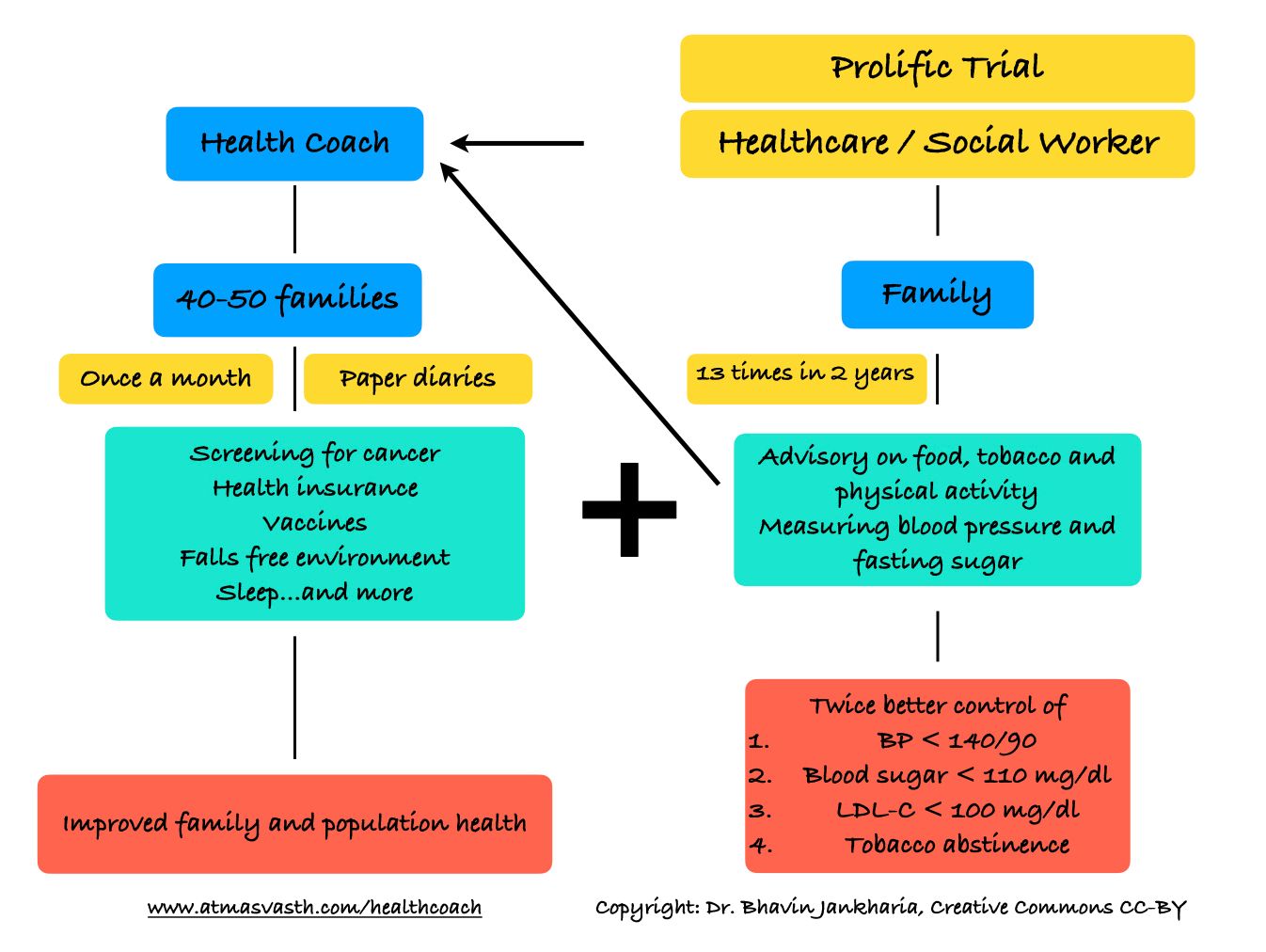
Essential Reading
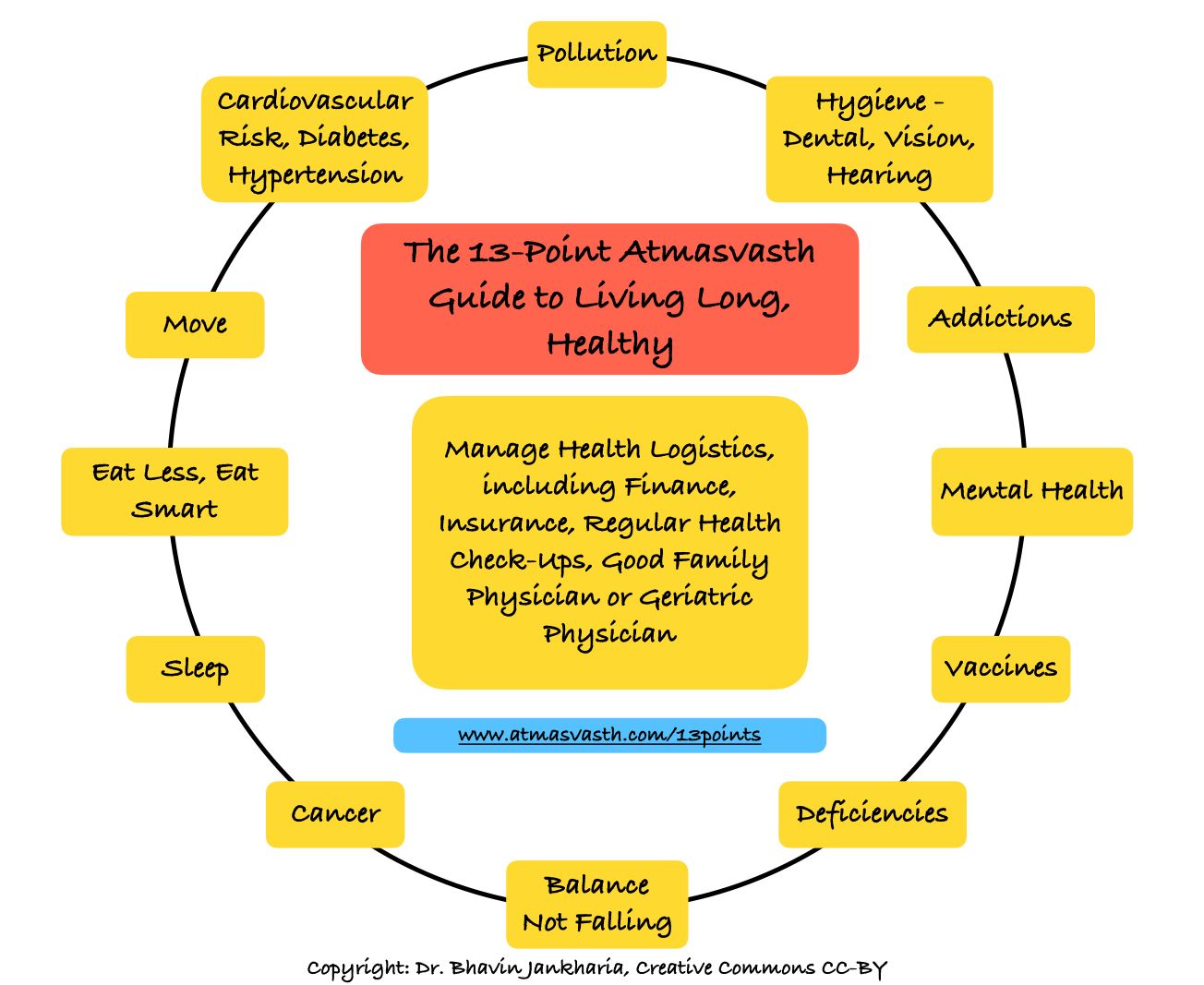
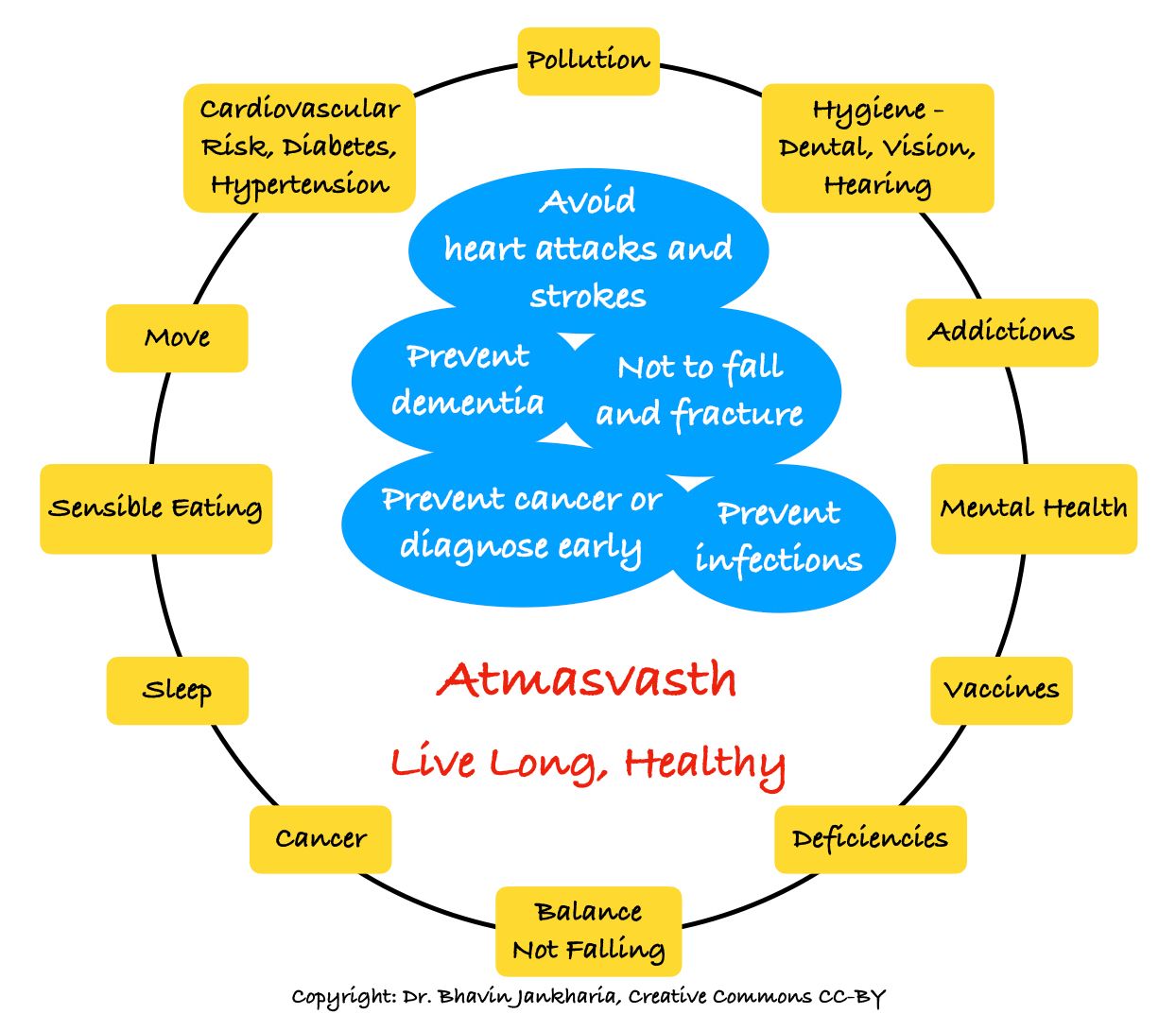
Please see the Archives for the rest of the posts
Footnotes
1. Wood FA, Howard JP, Finegold JA, Nowbar AN, Thompson DM, Arnold AD, et al. N-of-1 Trial of a Statin, Placebo, or No Treatment to Assess Side Effects. n engl j med. 2020;383:2182
2. Howard JP, Wood FA, Finegold JA, et al. Side Effect Patterns in a Crossover Trial of Statin, Placebo, and No Treatment. J Am Coll Cardiol. 2021 Sep 21;78(12):1210-1222. doi: 10.1016/j.jacc.2021.07.022. PMID: 34531021.
3. Toth PP. That Myalgia of Yours Is Not From Statin Intolerance. J Am Coll Cardiol. 2021 Sep 21;78(12):1223-1226. doi: 10.1016/j.jacc.2021.07.025. PMID: 34531022.
Atmasvasth Newsletter
Join the newsletter to receive the latest updates in your inbox.

